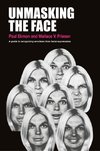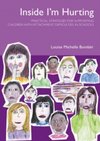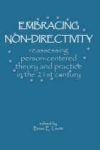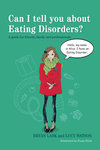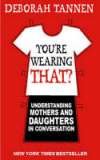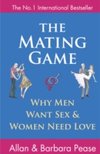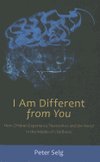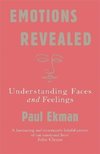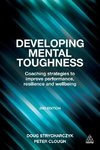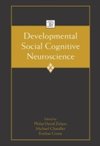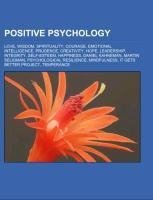
-
 Anglický jazyk
Anglický jazyk
Positive psychology
Autor: Source: Wikipedia
Source: Wikipedia. Pages: 137. Chapters: Love, Wisdom, Spirituality, Courage, Emotional intelligence, Prudence, Creativity, Hope, Leadership, Integrity, Self-esteem, Happiness, Daniel Kahneman, Martin Seligman, Psychological resilience, Mindfulness, It Gets... Viac o knihe
Na objednávku, dodanie 2-4 týždne
28.08 €
bežná cena: 31.20 €
O knihe
Source: Wikipedia. Pages: 137. Chapters: Love, Wisdom, Spirituality, Courage, Emotional intelligence, Prudence, Creativity, Hope, Leadership, Integrity, Self-esteem, Happiness, Daniel Kahneman, Martin Seligman, Psychological resilience, Mindfulness, It Gets Better Project, Temperance, Forgiveness, Self-efficacy, Flow, Gratitude, Values in Action Inventory of Strengths, Humor, Mental health, Optimism, Learned optimism, Humanity, The Happiness Hypothesis, Implicit self-esteem, Sex integration, Positive psychological capital, Character Strengths and Virtues, Zest, Self-esteem functions, Meta learning, Stewart Donaldson, Mark Sirkin, Curiosity, Mercy, Positive affectivity, Enthusiasm, Barbara Fredrickson, Positivity/negativity ratio, Positive organizational behavior, Marcial Losada, Tal Ben-Shahar, Kindness, Losada Zone, Praise, The Centre of New Enlightenment, Confidence, Losada line, Broaden-and-build, Pleasure principle, Rosenberg self esteem scale, Self-love, Effort optimism, List of positive psychologists, Perspicacity, Optimalism. Excerpt: Creativity refers to the phenomenon whereby a person creates something new (a product, a solution, a work of art, a novel, a joke, etc.) that has some kind of value. What counts as "new" may be in reference to the individual creator, or to the society or domain within which the novelty occurs. What counts as "valuable" is similarly defined in a variety of ways. Scholarly interest in creativity ranges widely: Topics to which it is relevant include the relationship between creativity and general intelligence; the mental and neurological processes associated with creative activity; the relationship between personality type and creative ability; the relationship between creativity and mental health; the potential for fostering creativity through education and training, especially as augmented by technology; and the application of an individual's existing creative resources to improve the effectiveness of learning processes and of the teaching processes tailored to them. Creativity and creative acts are therefore studied across several disciplines - psychology, cognitive science, education, philosophy (particularly philosophy of science), technology, theology, sociology, linguistics, business studies, and economics. As a result, there are a multitude of definitions and approaches. The lexeme in the English word creativity comes from the Latin term creo "to create, make" and its derivational suffixes also come from Latin. The word "create" appears in English as early as the 14th century, notably in Chaucer (in The Parson's Tale). However, its modern meaning as an act of human creation did not emerge until after the Enlightenment. In a summary of scientific research into creativity Michael Mumford suggested: ""Over the course of the last decade, however, we seem to have reached a general agreement that creativity involves the production of novel, useful products" (Mumford, 2003, p. 110). Beyond this general commonality, authors have diverged dramatically in their precise d
- Vydavateľstvo: Books LLC, Reference Series
- Rok vydania: 2016
- Formát: Paperback
- Rozmer: 246 x 189 mm
- Jazyk: Anglický jazyk
- ISBN: 9781156860618
